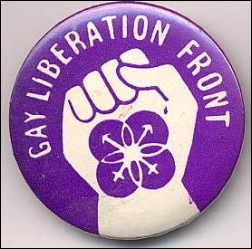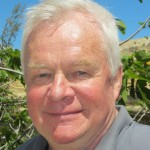Bob Cant
I was rather scared of the Gay Liberation Front (GLF). And when I saw them taking part in a demonstration against Ted Heath’s Industrial Relations Bill early in 1971, I became confused. I had, at that stage, never been to a GLF meeting but I imagined that they focused on freedom for people who wanted to have sexual relations with other people of the same sex. After that march, I began to realise that their politics must be broader than that. I was having sex with other men but it was difficult to be properly informed about GLF as all the articles in mainstream publications seemed to be written by people who had even less political understanding than I had. I was opposed to the Industrial Relations Bill but I really couldn’t see what that had to do with gay politics. I was involved then in anti-apartheid politics but wasn’t open there about my sexuality. I preferred to keep these different aspects of my life in separate silos and I thought that the different political organisations should remain in different silos too. It was a difficult balancing act to maintain all these separate worlds.

When I did, in September of that year, make my way timidly to a London GLF meeting, I realised that I didn’t have to keep all my worlds separate. The core message which I learned from GLF was that gay people should come out about their sexuality as much as they could. That wasn’t immediately any easier than my previous balancing act but it made intellectual and emotional sense to me; I would even go so far as to say it was a revelation. I started a full-time job that same month and I soon aspired to come out to my colleagues and my fellow trade unionists. ‘Aspiring’ proved to be a very flexible word and the process in that place of work took several years. But I began to understand better the links between the different parts of my life and the different forces which oppressed and divided people throughout society. When I had been watching the demonstration about trade union legislation early in 1971, I was very much an observer. By the end of that year, I had stepped off the pavement and had begun to become part of a movement.
Many of us who joined the trade union movement after experiencing the politics of GLF or the Campaign for Homosexual Equality (CHE) were not prepared to go back into the closet for fear of breaching some unspoken norm amongst our fellow trade unionists. Even our friends in the unions thought they were doing us a favour if they never mentioned our sexuality. The article which I wrote about Gays and the Trade Union Movement for Issue 1 of Gay Left was just one example of a growing level of activity by what we then called gay trade unionists.
 Bob Cant has been a teacher, a trade unionist, a community development worker, a Haringey activist and an editor of several collections of LGBT oral history. He now lives in Brighton and his first novel, Something Chronic, was published in October 2012. Bob tweets from @bobchronic
Bob Cant has been a teacher, a trade unionist, a community development worker, a Haringey activist and an editor of several collections of LGBT oral history. He now lives in Brighton and his first novel, Something Chronic, was published in October 2012. Bob tweets from @bobchronic

NOTCHES: (re)marks on the history of sexuality is licensed under a Creative Commons Attribution-NonCommercial-NoDerivatives 4.0 International License.
Based on a work at www.notchesblog.com.
For permission to publish any NOTCHES post in whole or in part please contact the editors at NotchesBlog@gmail.com




